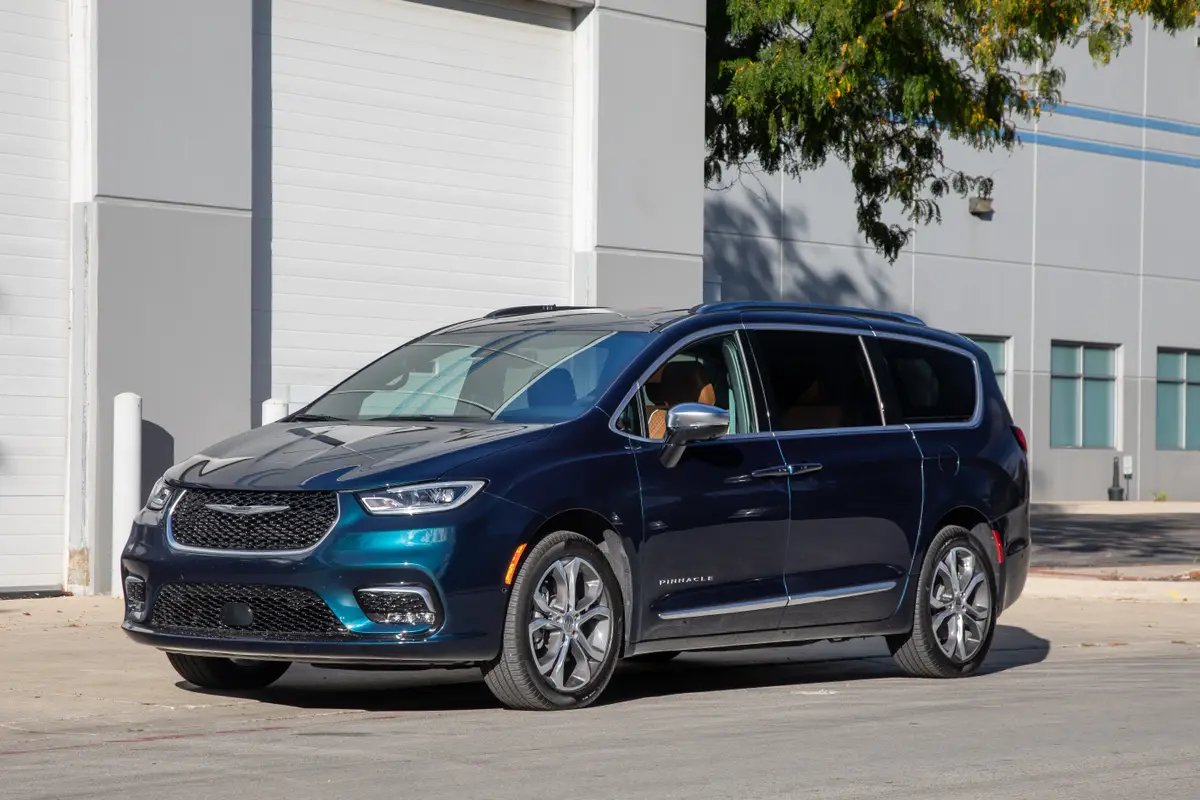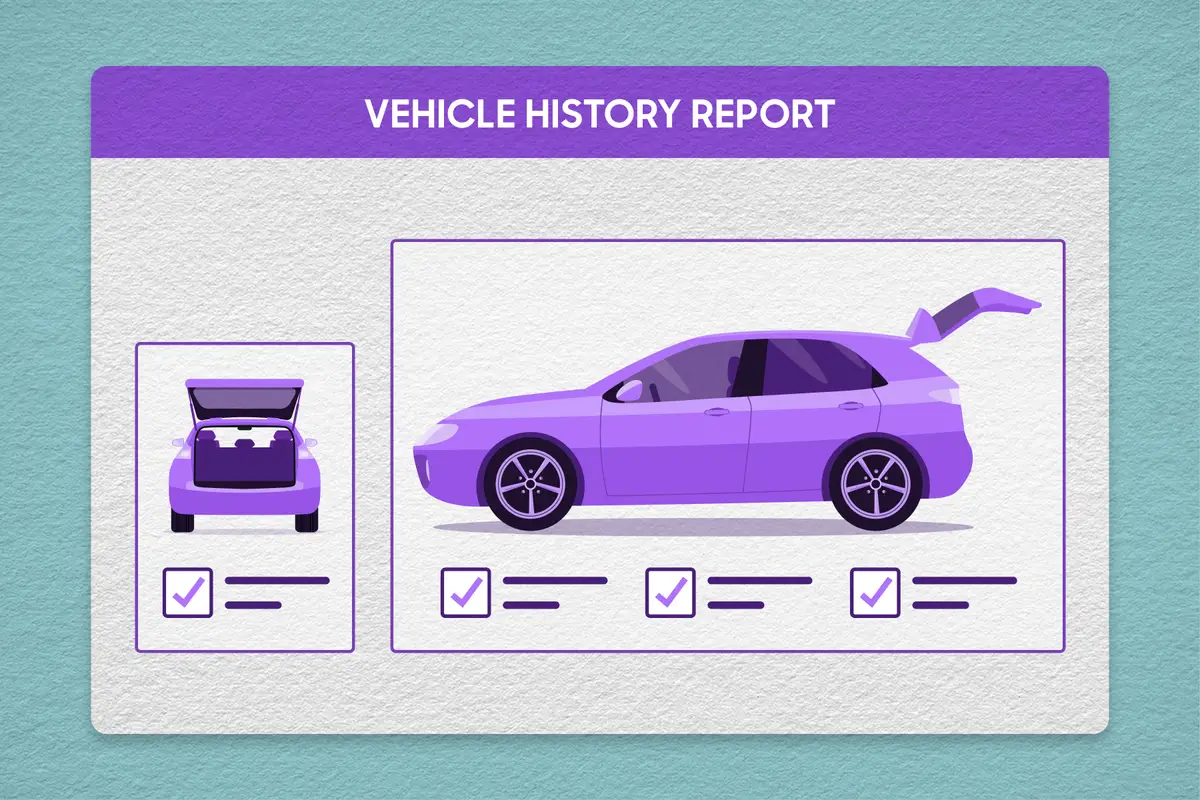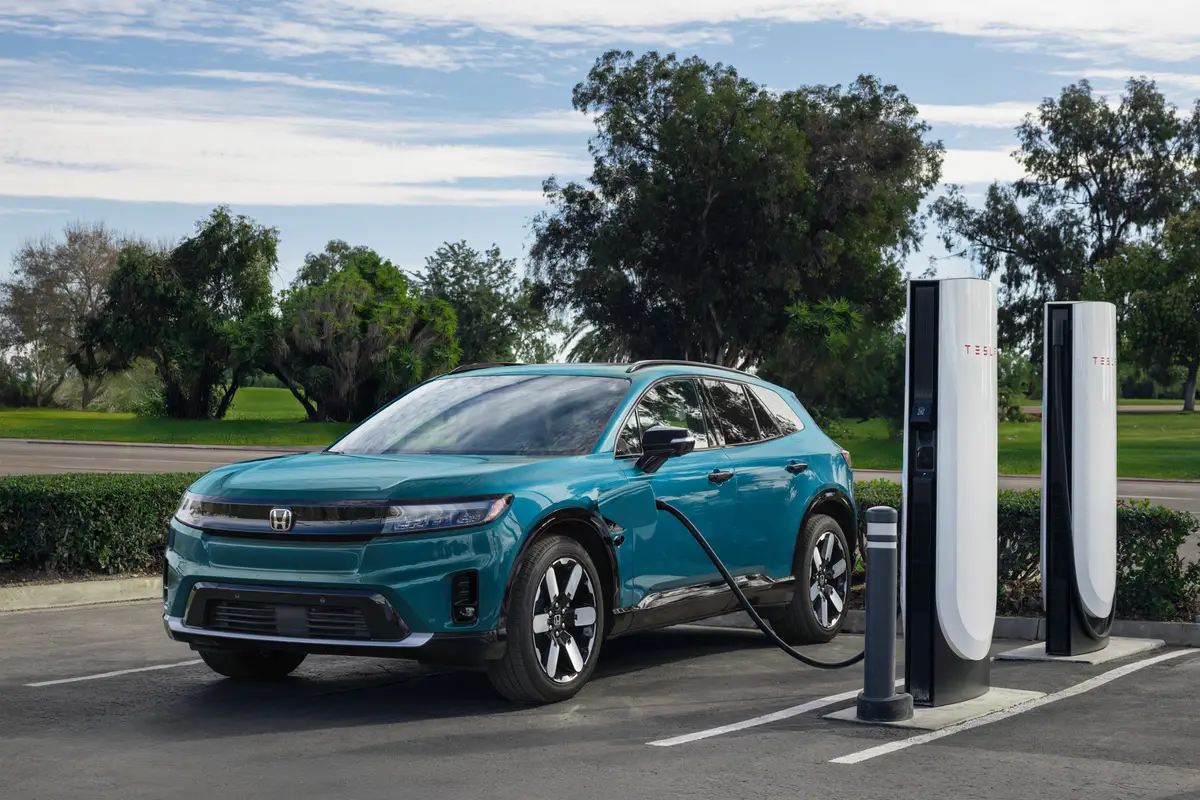2026 Nissan Leaf Up Close: Third Time’s Truly a Charm


In this protracted period of ballooning costs, skyrocketing pricing and (seemingly) overpriced electric vehicles, the Nissan Leaf remains a thrifty salve for those seeking a basic, no-tricks electric daily driver for reasonable cost. Now, with the future of the EV’s market cap still uncertain, the third-generation Leaf zips onto the battery battlefield for 2026 with new style, new specs and a whole new, ah, vibe that goes a long, long way toward bringing one of the O.G. EVs into the “modern” electric era.
Related: 2026 Nissan Leaf Goes Crossover, Finally Gets the Range It Deserves
The Post-Grad Glow-Up Phase
If the first-gen Leaf set the stage for early adopters and the second gen proved an affordable EV doesn’t have to be a weird, pseudo-futuristic penalty box, the third generation is the Leaf’s post-grad glow-up phase. And to kick things off, the Leaf figured out its style; the prior two hatchback Leafs (Leaves?) were seated far, far from the cool kids table filled with Teslas, Porsche Taycans and Audi E-Trons.
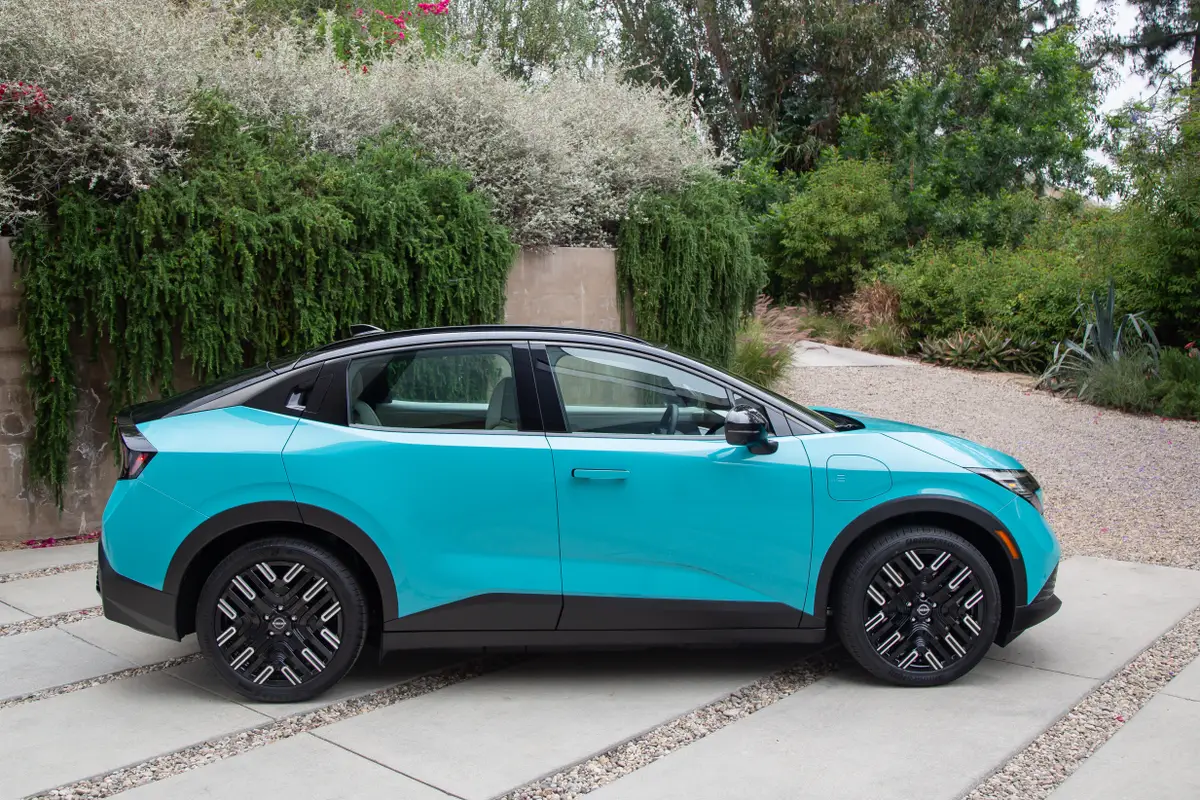
Much to my (and other enthusiasts’) chagrin, hatchbacks don’t sell — but crossovers do. Now, that’s not entirely why it was time for the second-gen Leaf to join the great junkyard in the sky, but buyers’ proclivity for either SUVs or sedans was a big factor in the new Leaf’s transition to a lifted-crossover-sedan-fastback thing. I think it looks good for its intention — especially in person — and it should capture the attention of folks who were turned off by the first- and second-gen Leaf’s funky, dowdy looks.
The fastback shape also successfully differentiates it from Nissan’s existing and larger Ariya SUV as much as it does from the rest of the competitive field. There’s even a rare bit of stylistic cheekiness from the usually serious Nissan. See those taillights? Note the two- and three-bar motif. According to the automaker, “two-three” is pronounced “ni-san.” Look for that motif in the headlights, taillights, wheel designs and cabin. Adorable.
Better Inside Than Ever
Speaking of the interior, it’s way better than ever. Most of the overt, concepty futurism is gone, replaced with familiar current-gen Nissan threads with just a hint of funky. It’s kind of like drinking a Future-flavored LaCroix — you can taste it, but you’re not sure how much of a difference it makes. Standard tech is up, with dual 12.3-inch infotainment and driver displays that each stretch to 14.3 inches on higher grades.
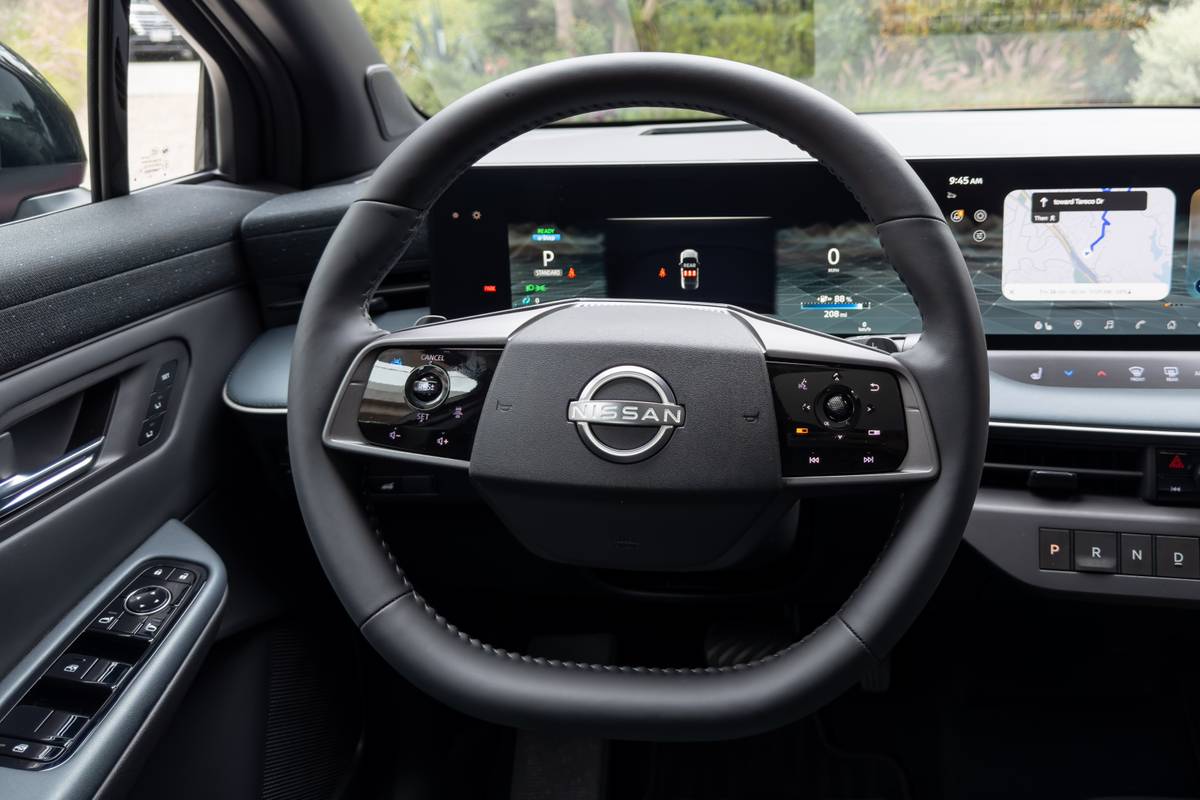
Wireless Apple CarPlay and Android Auto are also standard, with Google Built-In available as an extra. For the music nerds, a 10-speaker Bose system is available; for the visibility nerds, the Leaf comes with a full suite of exterior cameras, including a 360-degree view and Nissan’s trademark “invisible hood.”
My time was spent with the top-tier Platinum+ trim, and above-average soft-touch materials and faux leather upholstery keeps it on par with other loaded Nissans from the automaker’s playbook. I dig the airy vibe of the front occupant area, and I especially like the trim’s electrochromic panoramic roof, the first of its kind for Nissan.
Upgraded Powertrain and Charging Specs
The biggest headlines here, however, surround the updated powertrain. All Leafs drink the zappy stuff from either a standard 52- or optional 75-kilowatt-hour battery pack; compare this to the standard 40-kWh and optional 62-kWh packs in the outgoing car. The smaller battery — which Nissan says can be expected later in the production cycle — juices a front electric motor for 174 horsepower and 254 pounds-feet of torque. The more power-dense pack ups output to 214 hp and 261 pounds-feet of torque. Both are not terribly far removed from the second-gen Leaf’s base 110 hp and 236 pounds-feet and the higher-spec 214 hp and 250 pounds-feet.
Meanwhile, the Leaf’s charging is massively improved. An onboard 7.2-kilowatt charger is fed via two separate, standard charge ports, one in North American Charging Standard and the other in the familiar Level 2 J1772 configuration. This means the Leaf is good to plug in at a Tesla Supercharger network right from the box and is equally at home at an Electrify America or ChargePoint station if it’s more convenient. DC fast charging speed has tripled, with a 150 kW peak allowing for the vaunted 10%-to-80% charge sprint to take around 35 minutes, according to Nissan.
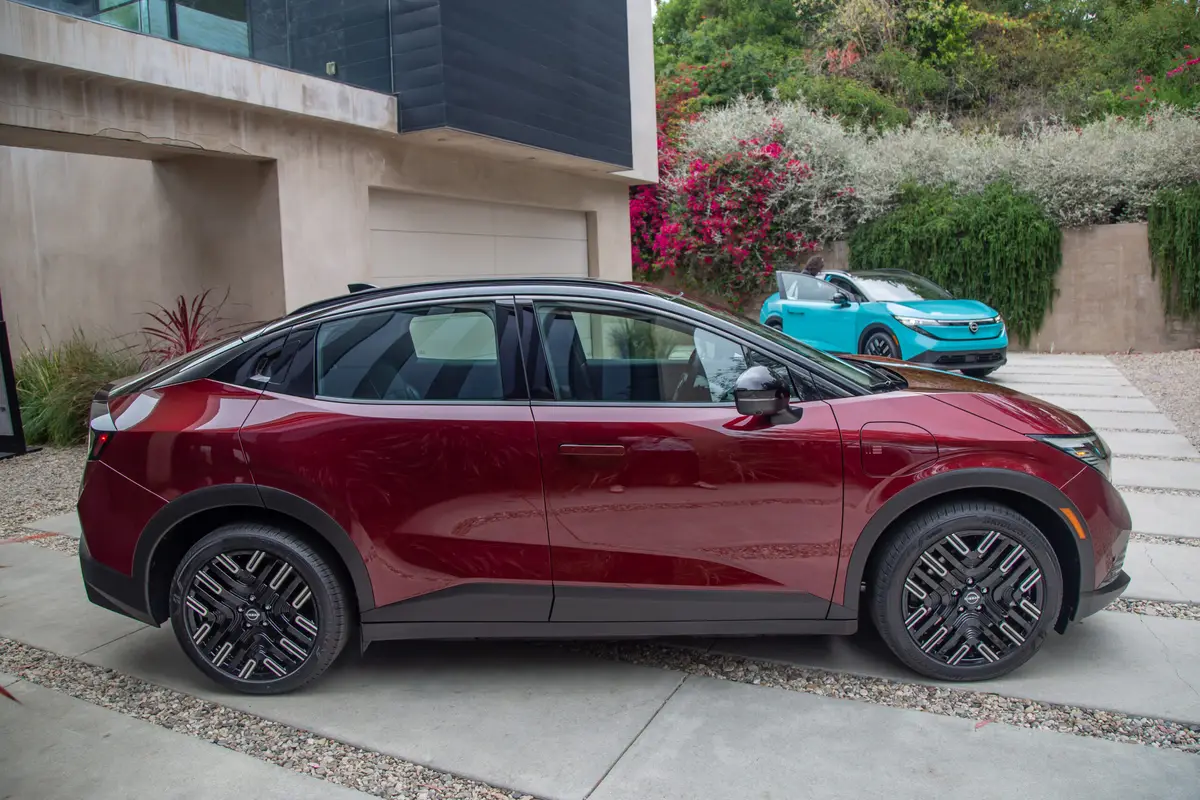
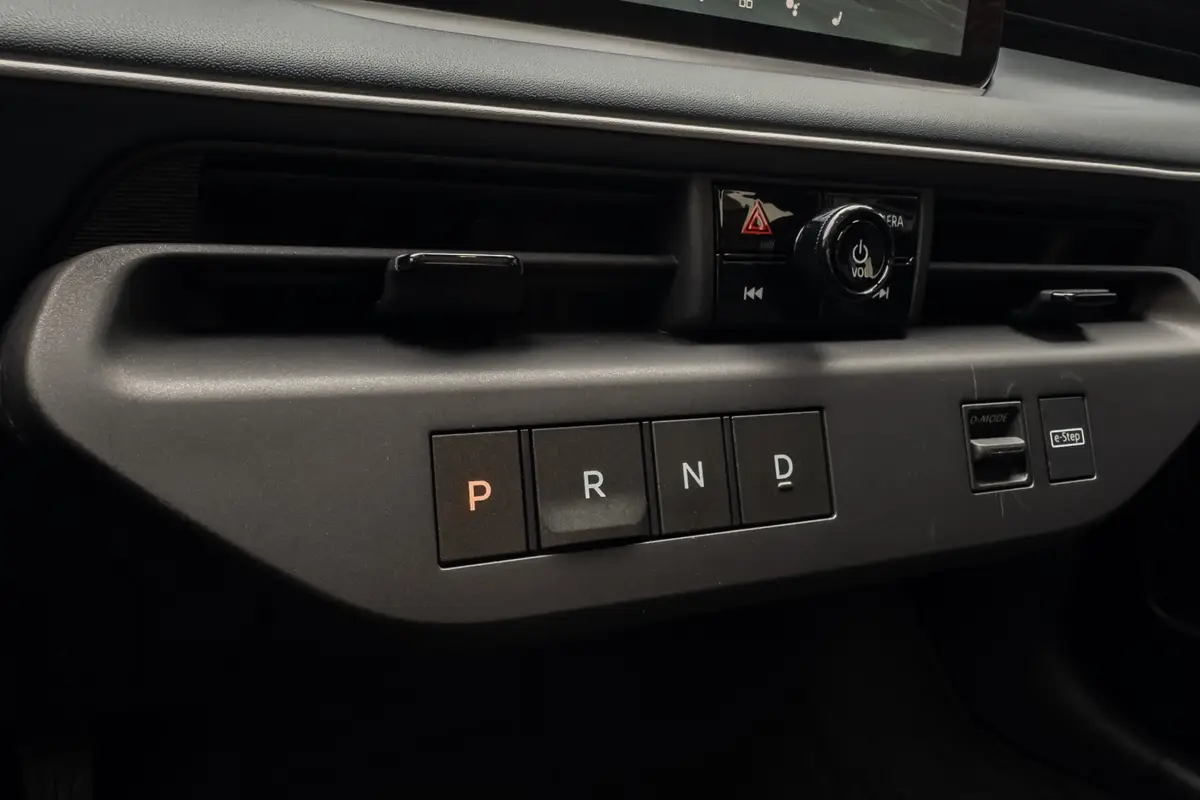
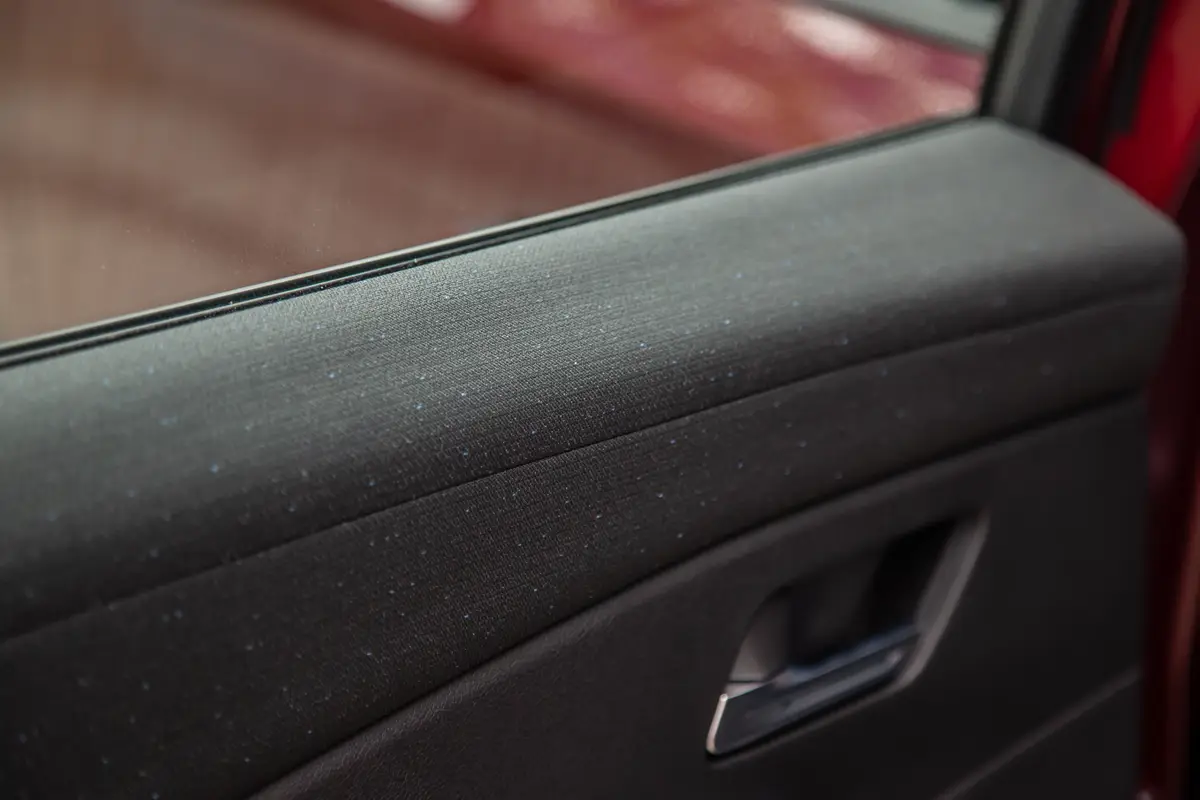
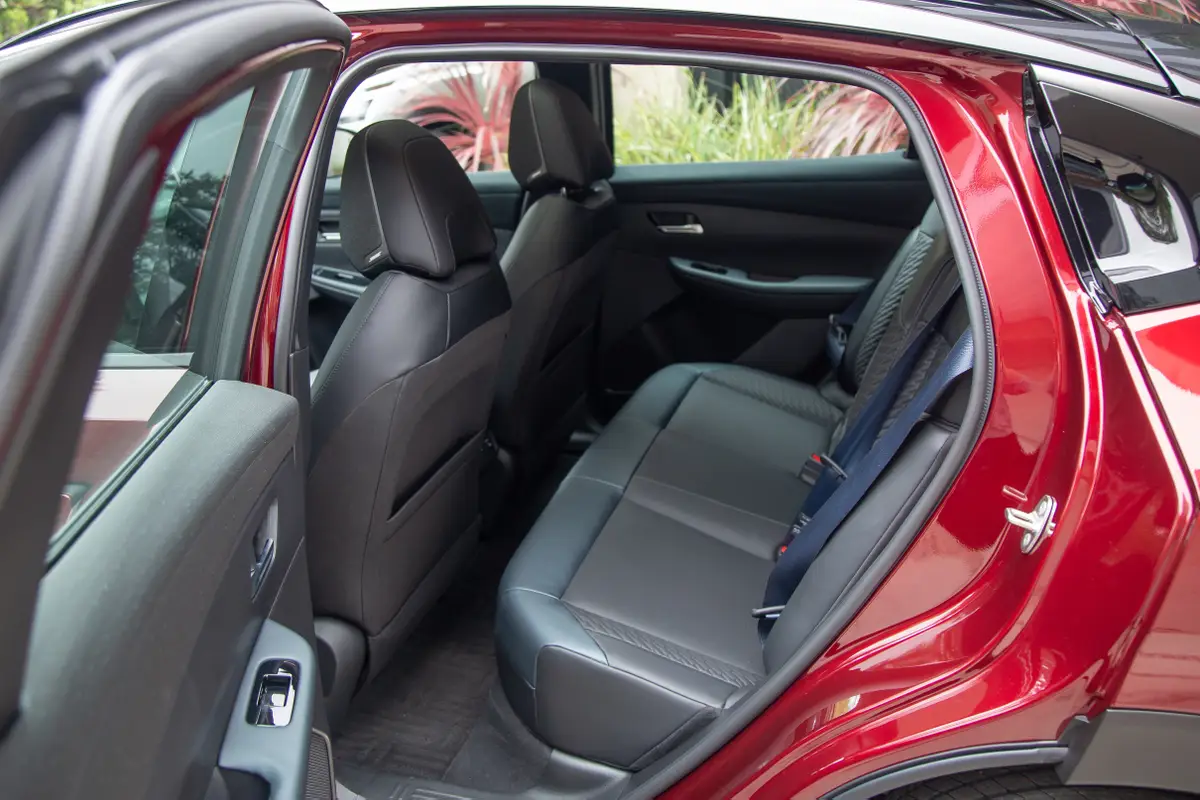
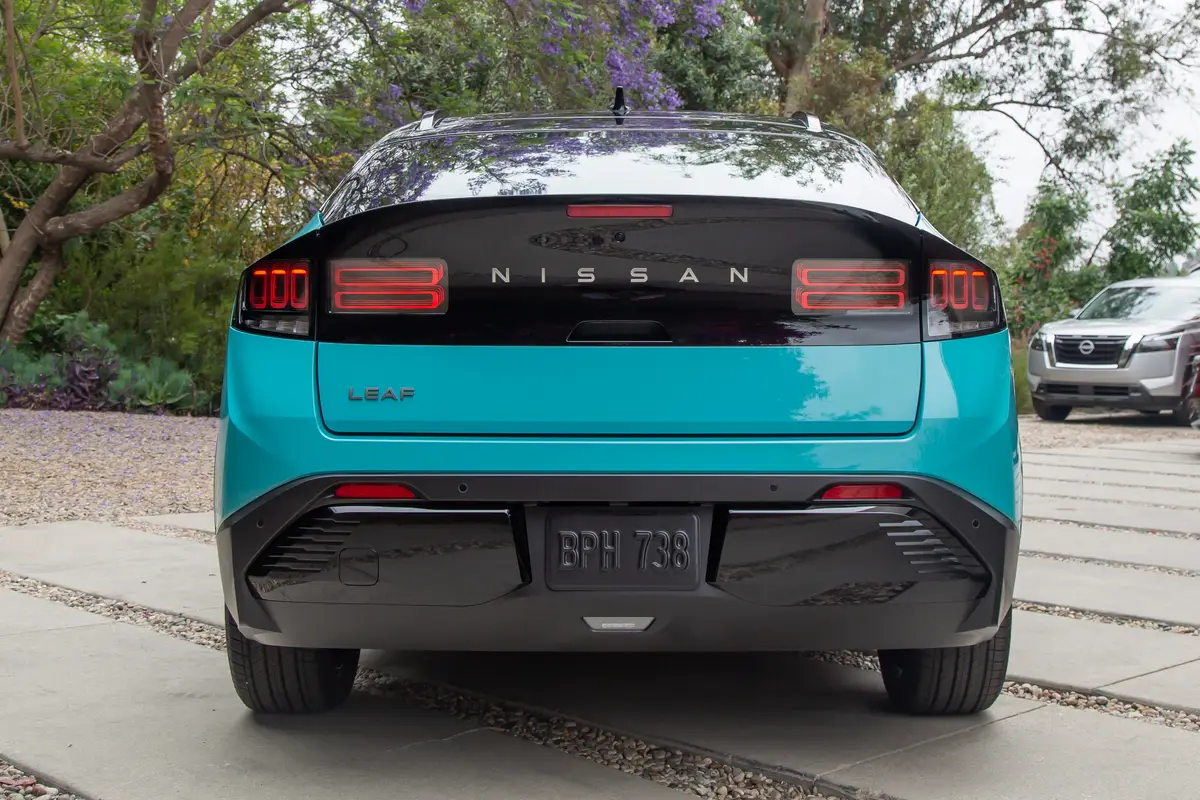
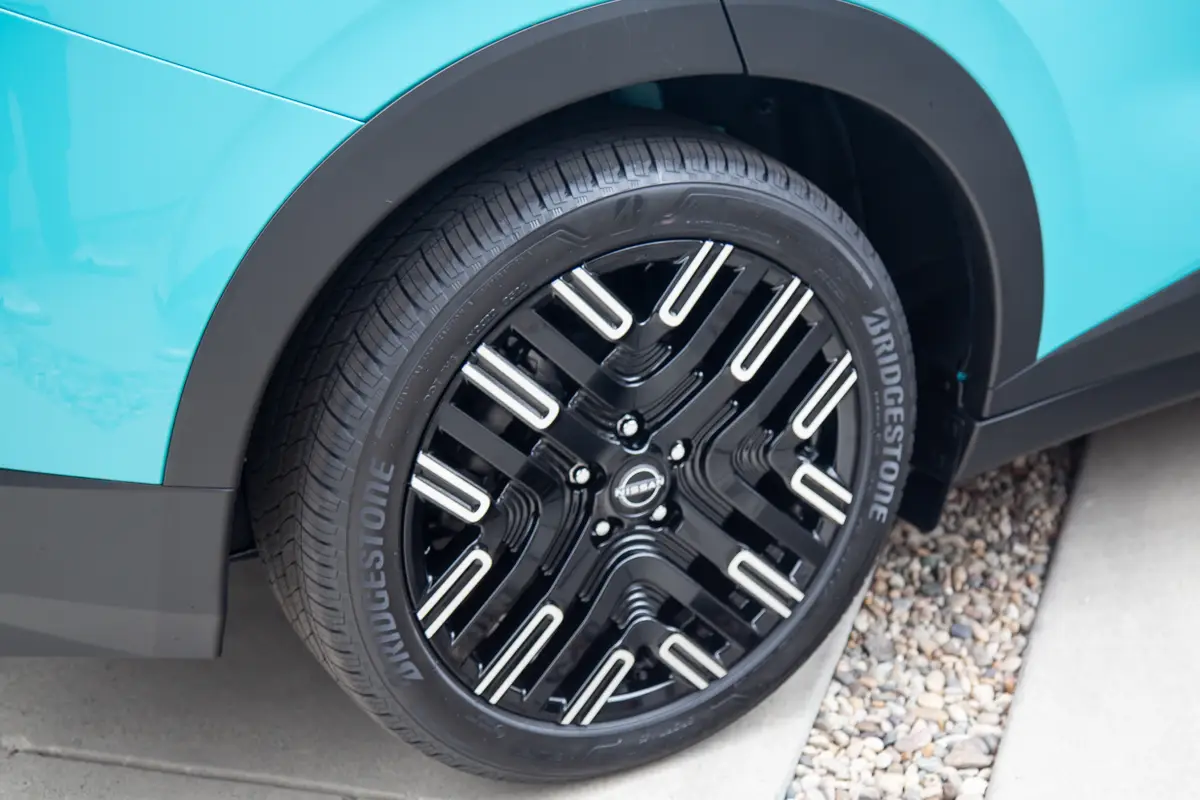
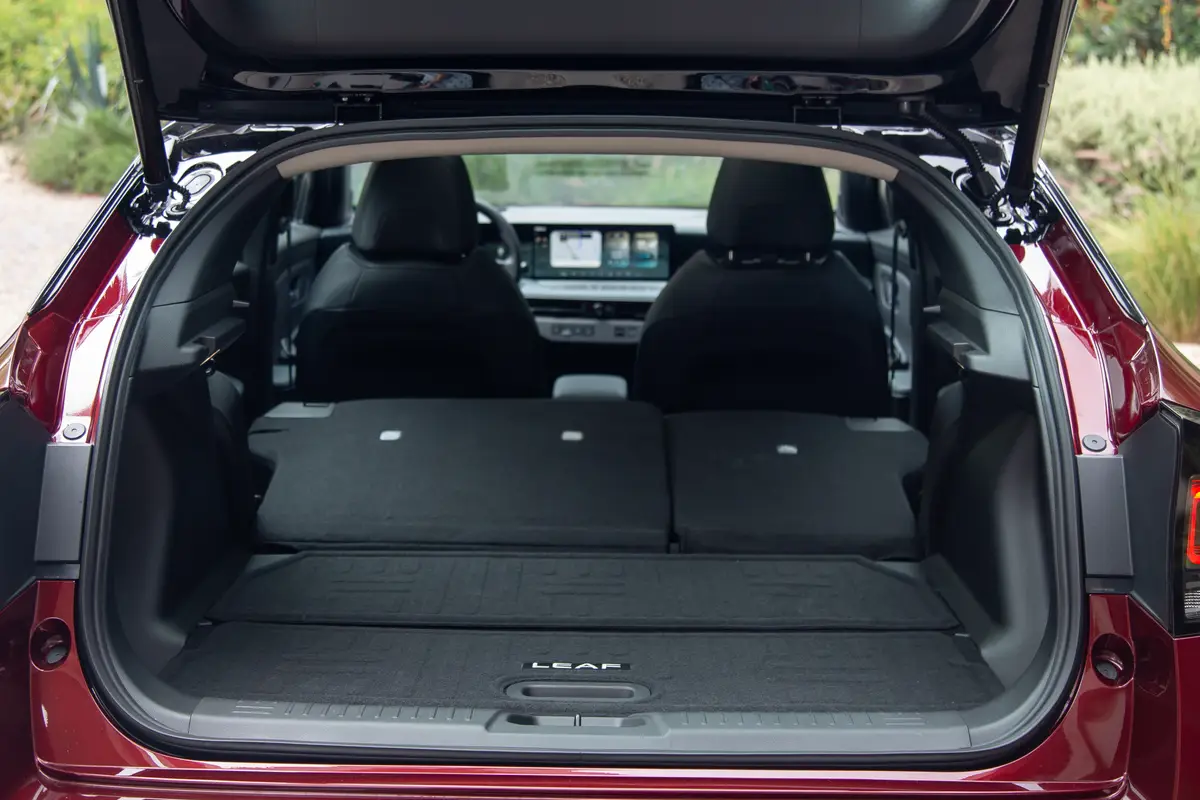
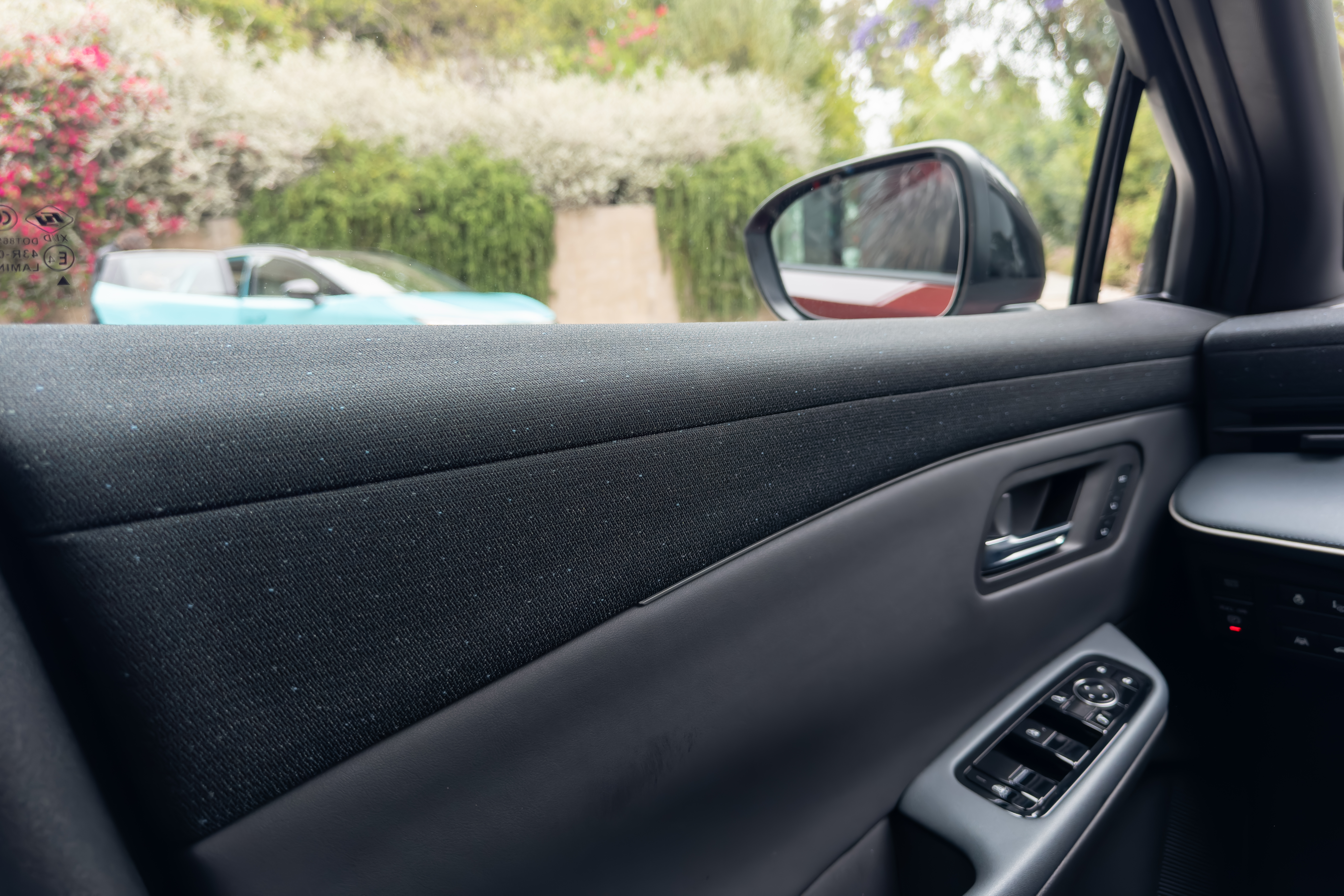
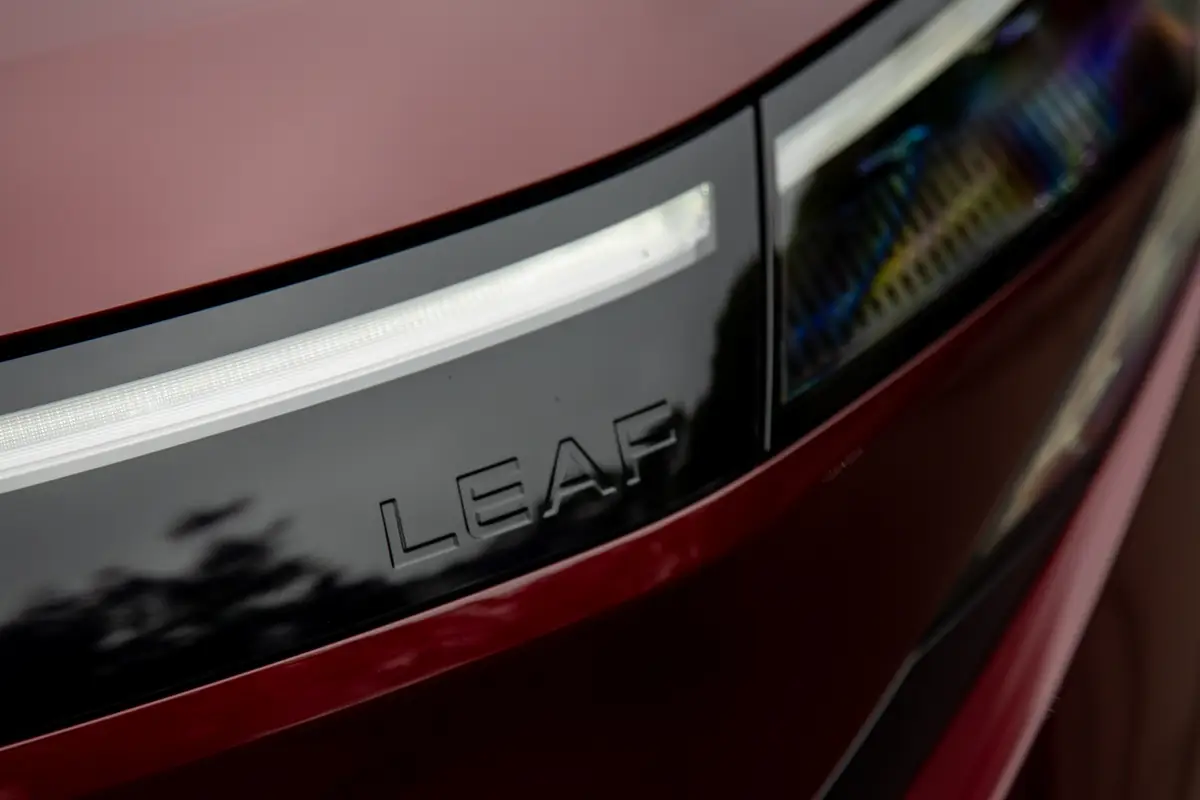
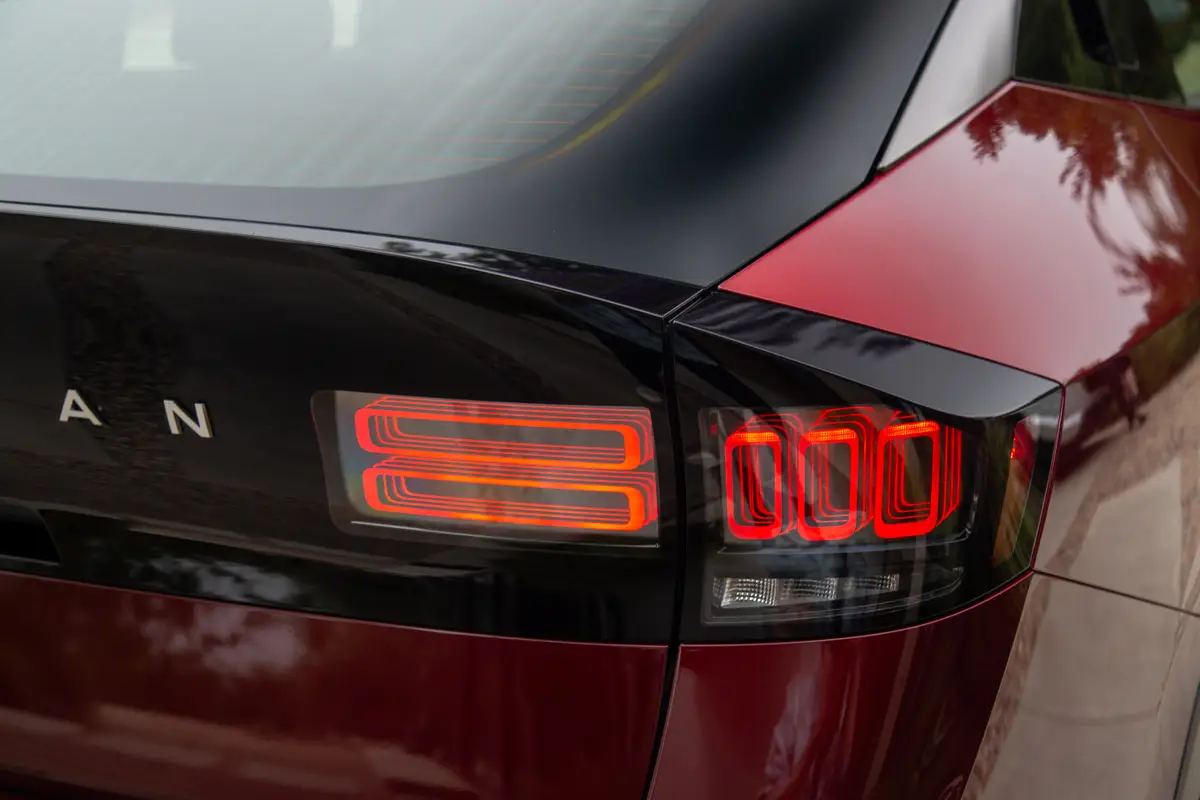
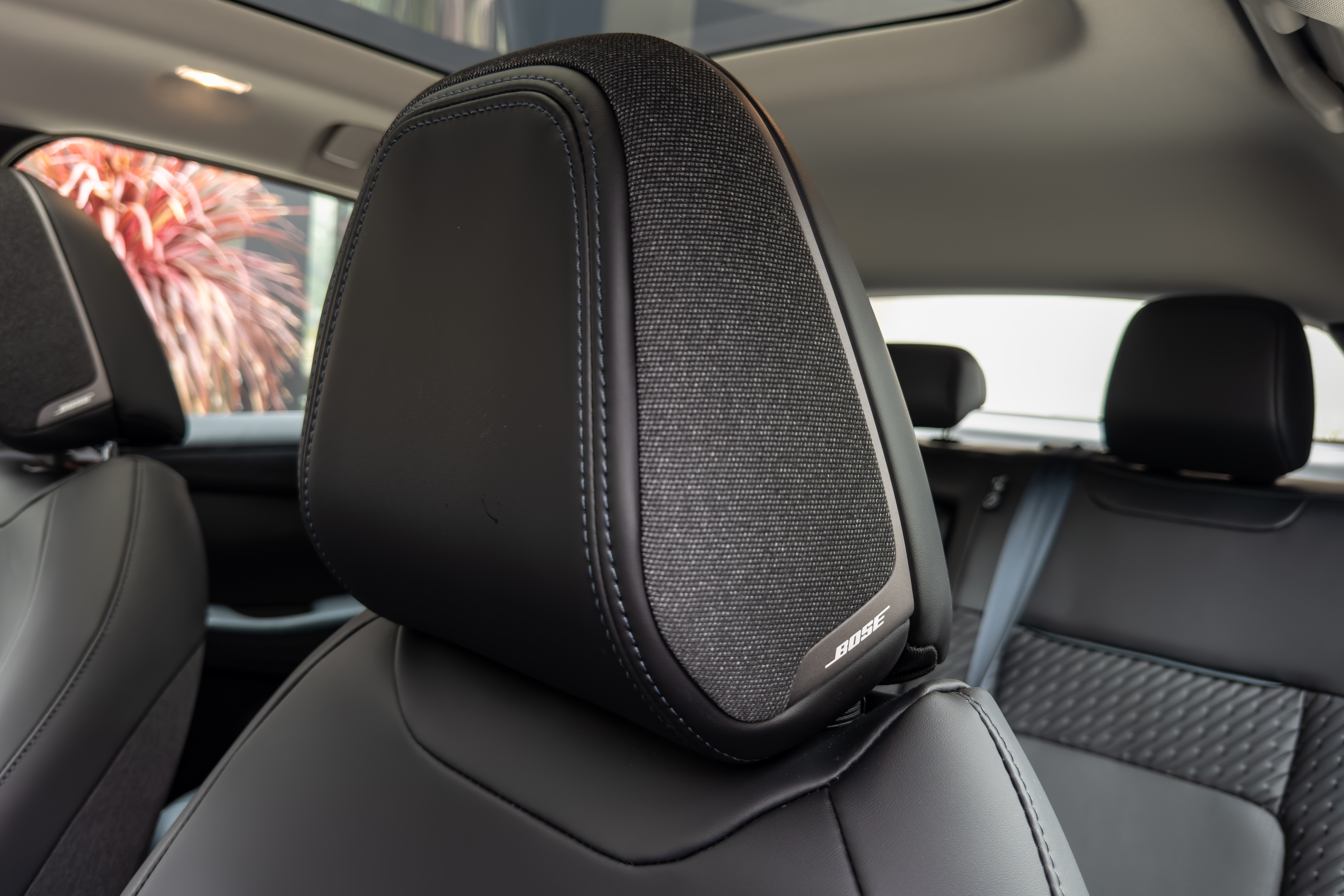

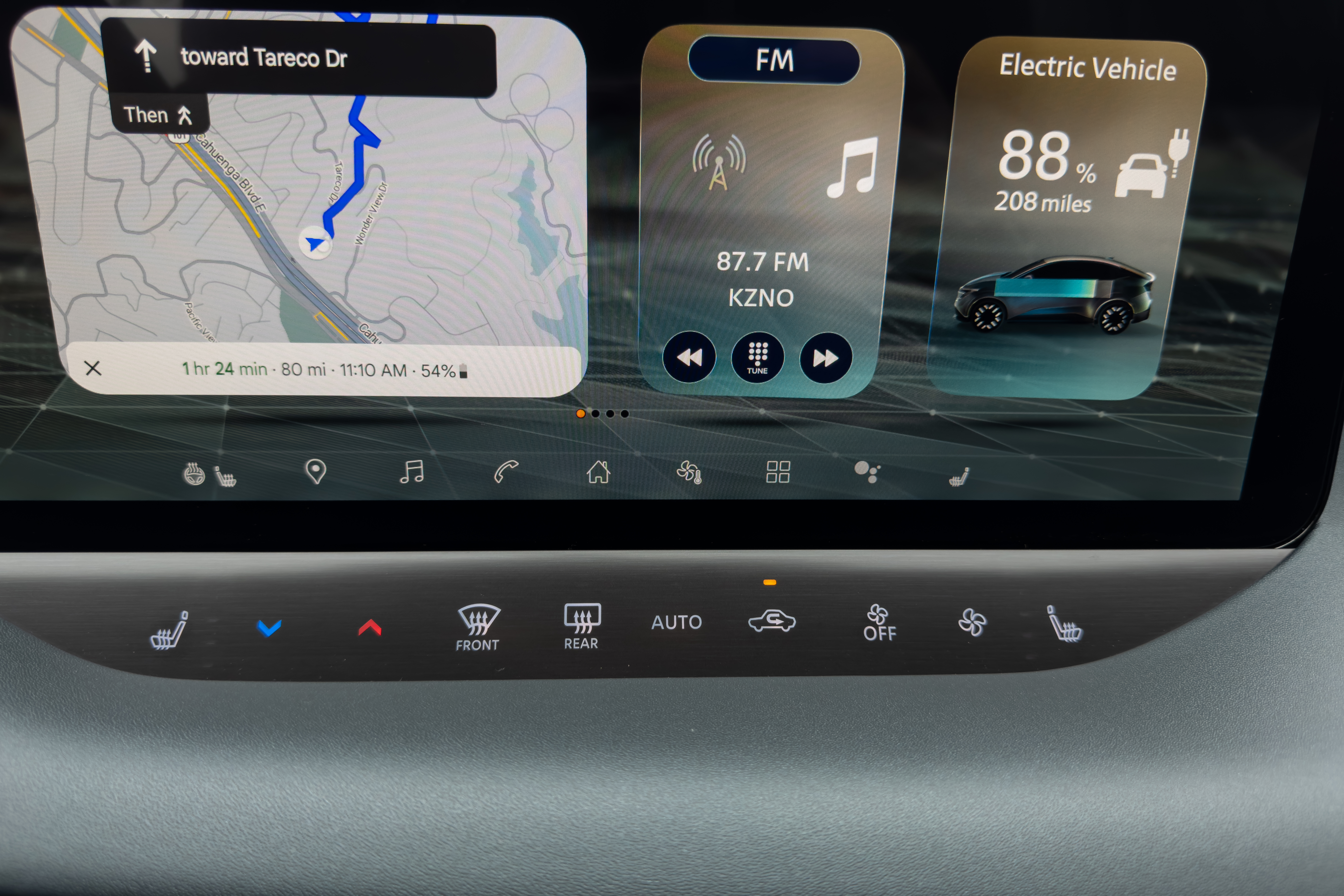
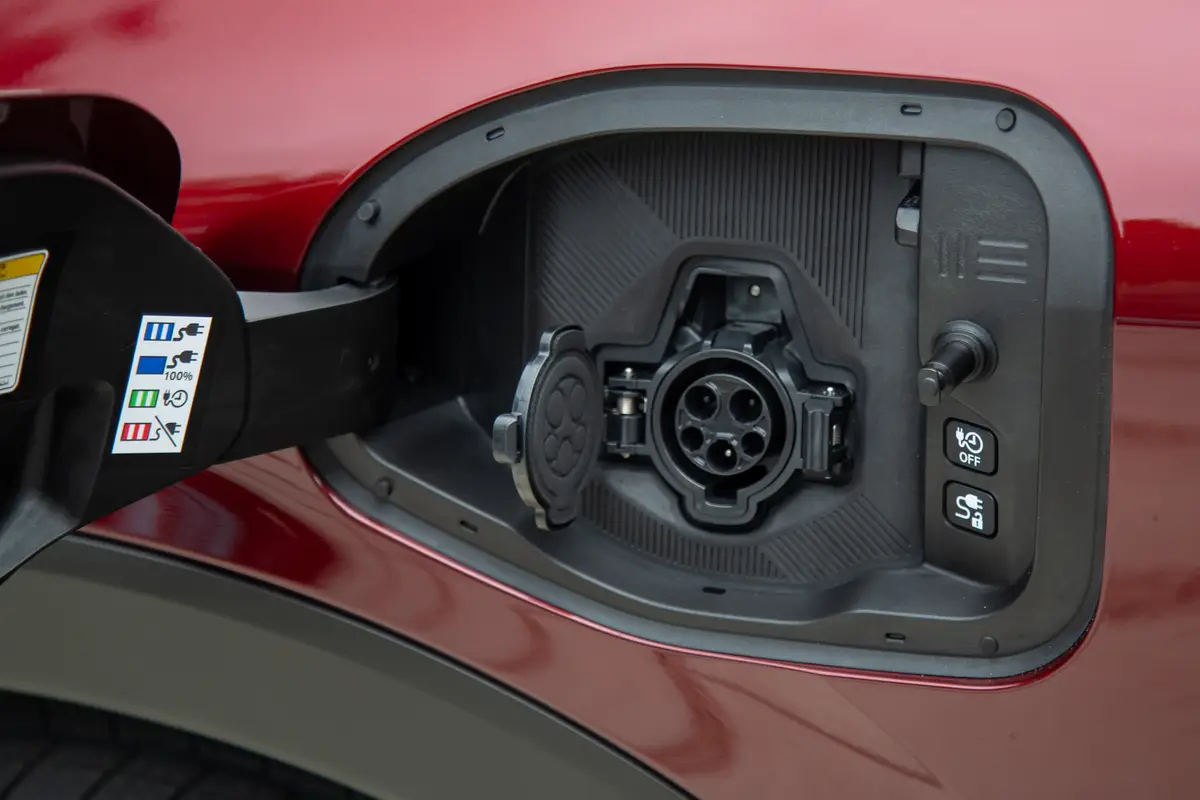
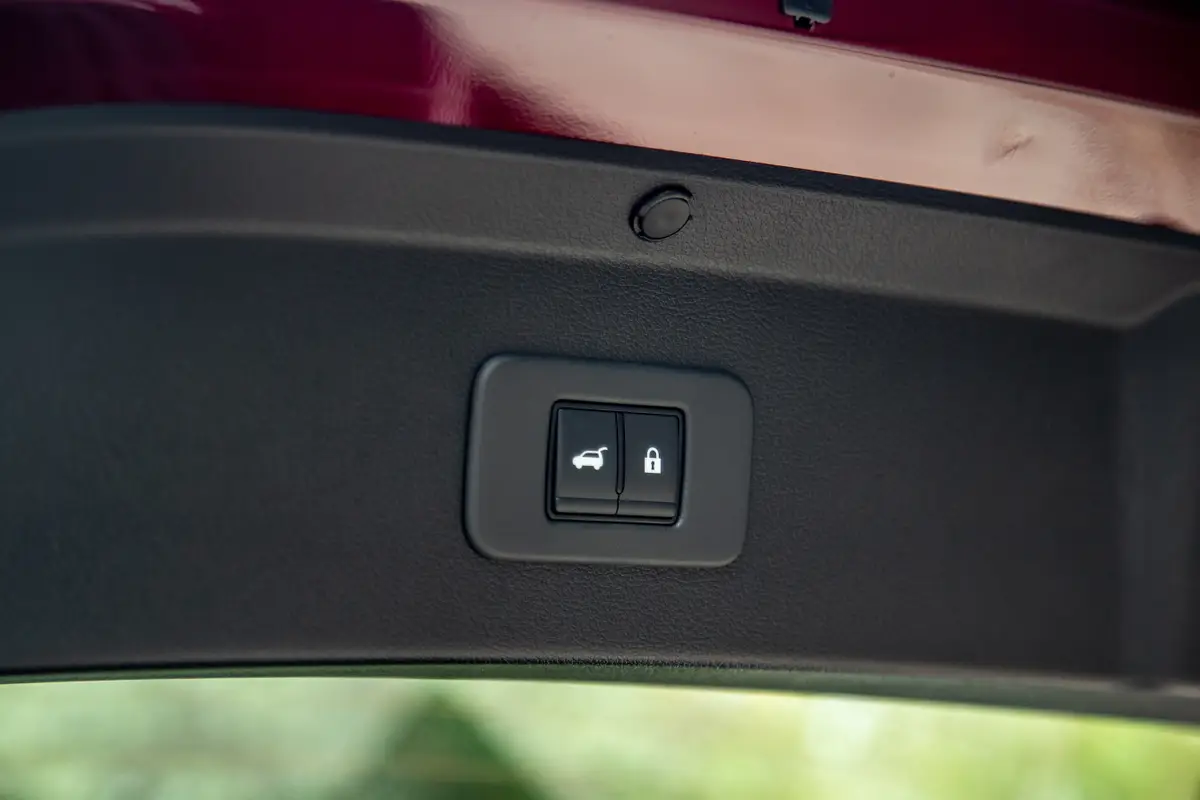
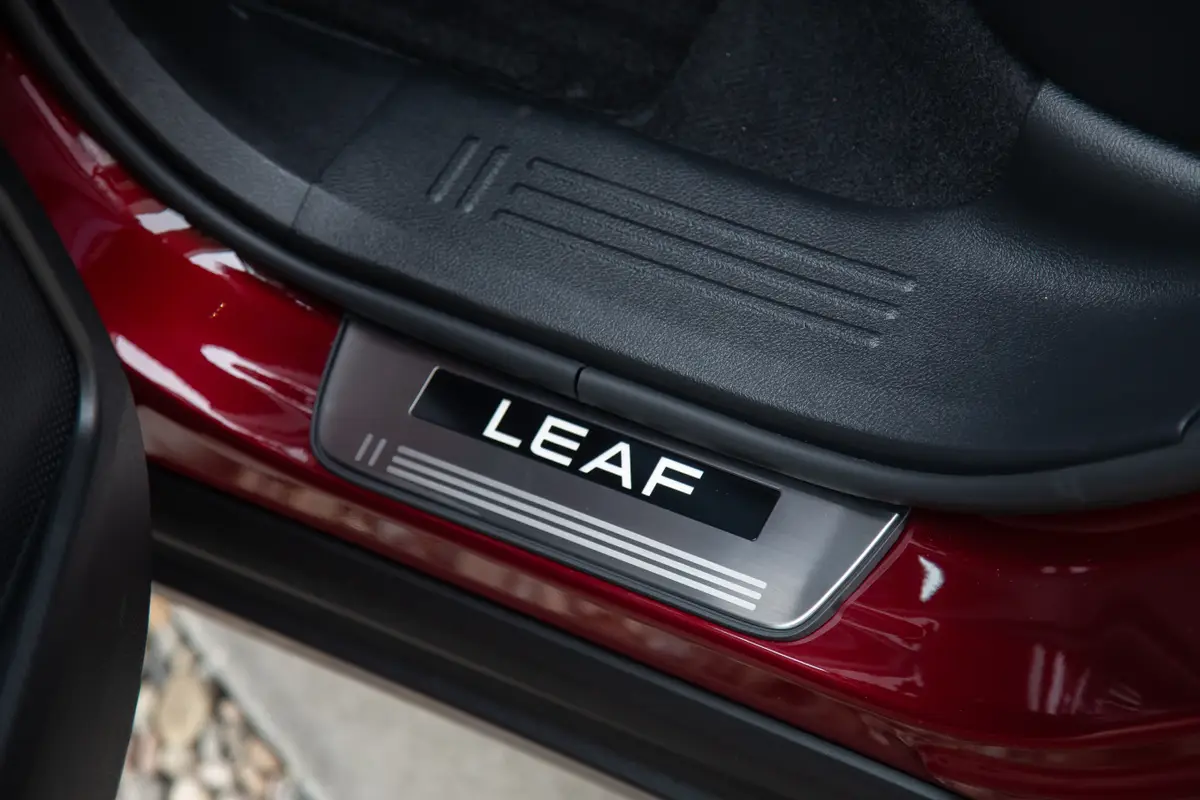
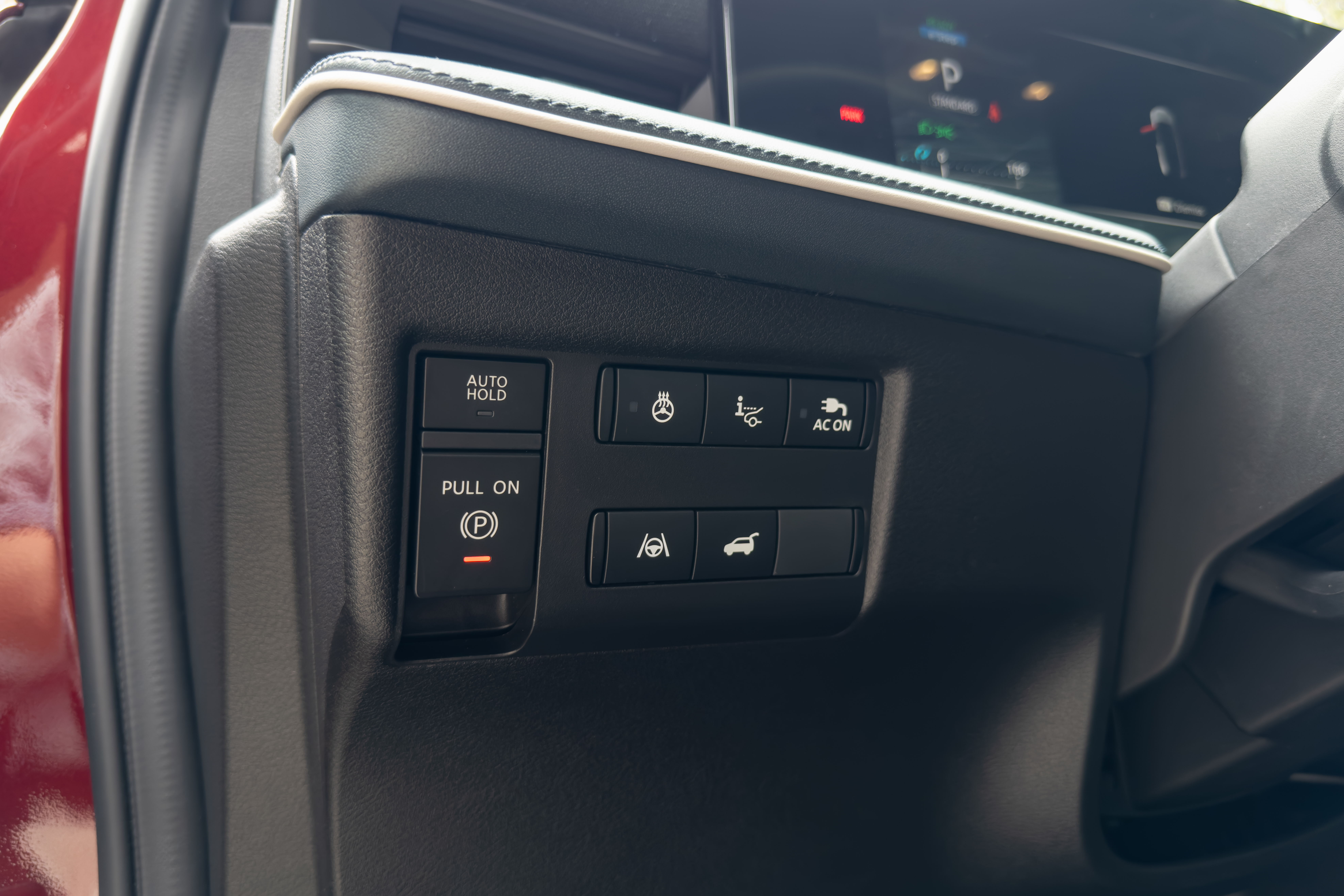
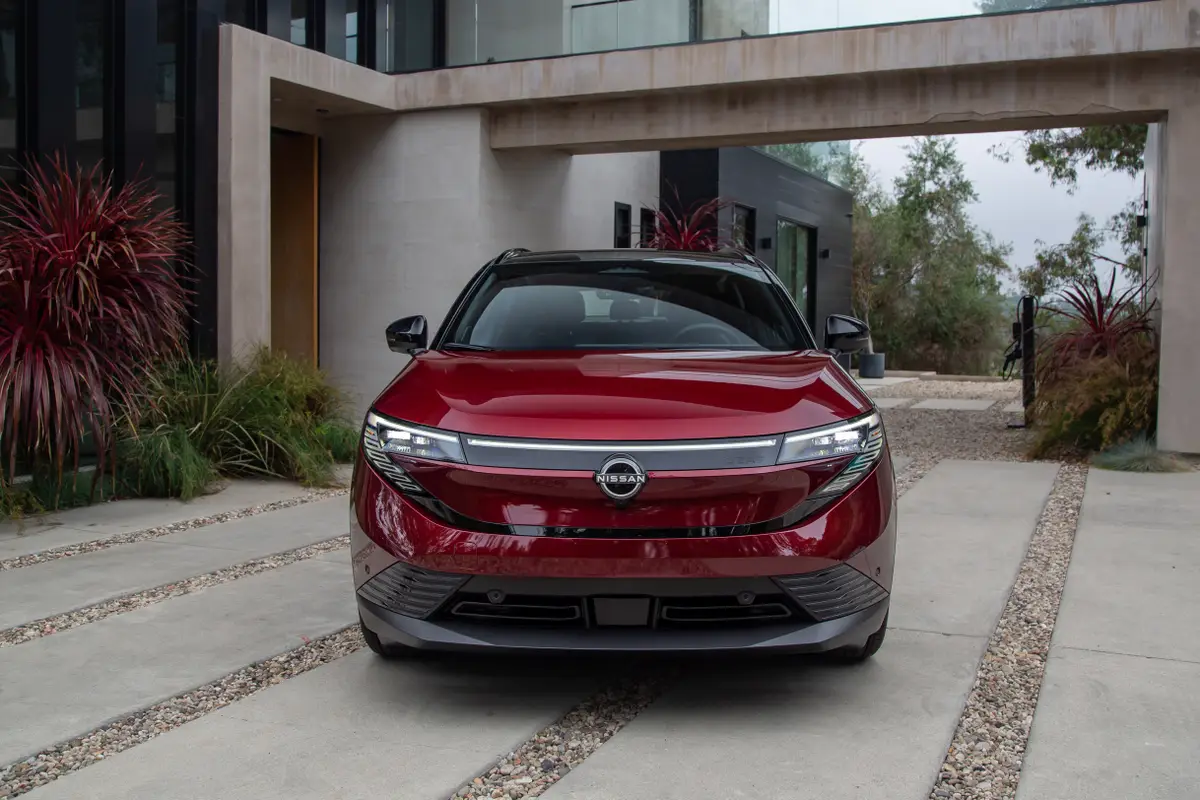
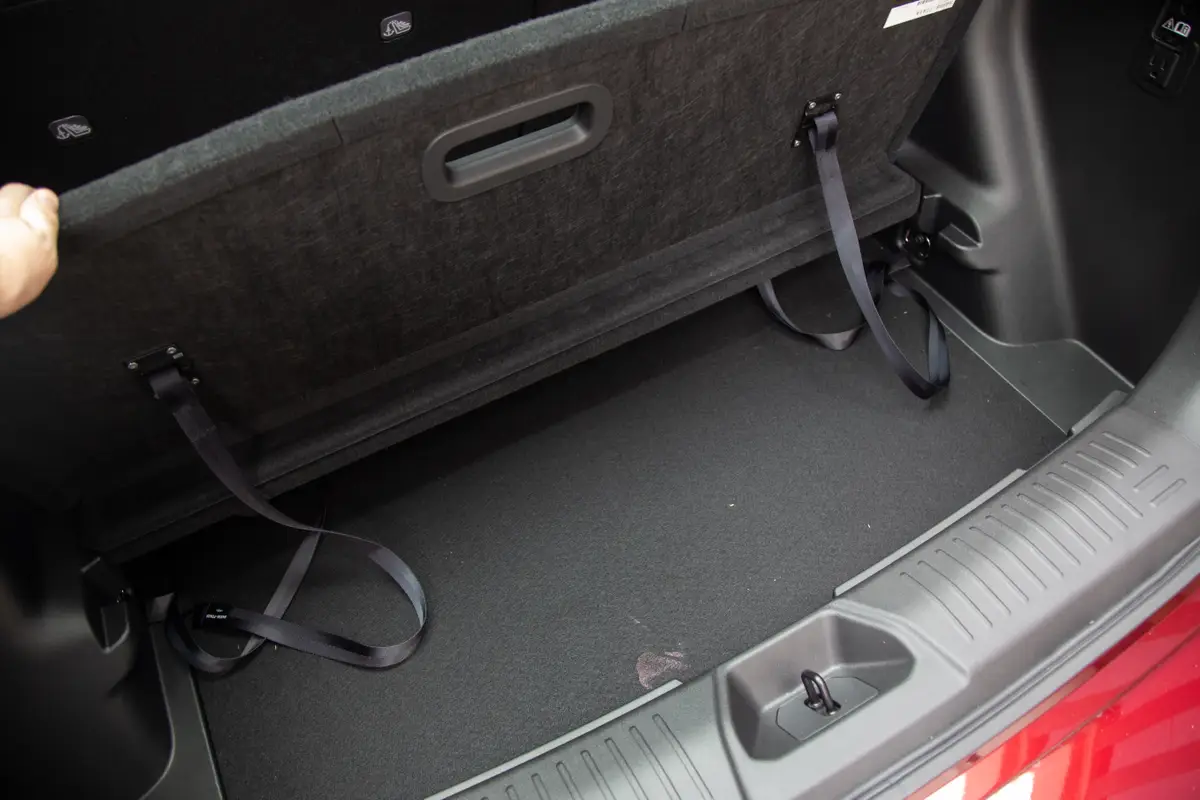
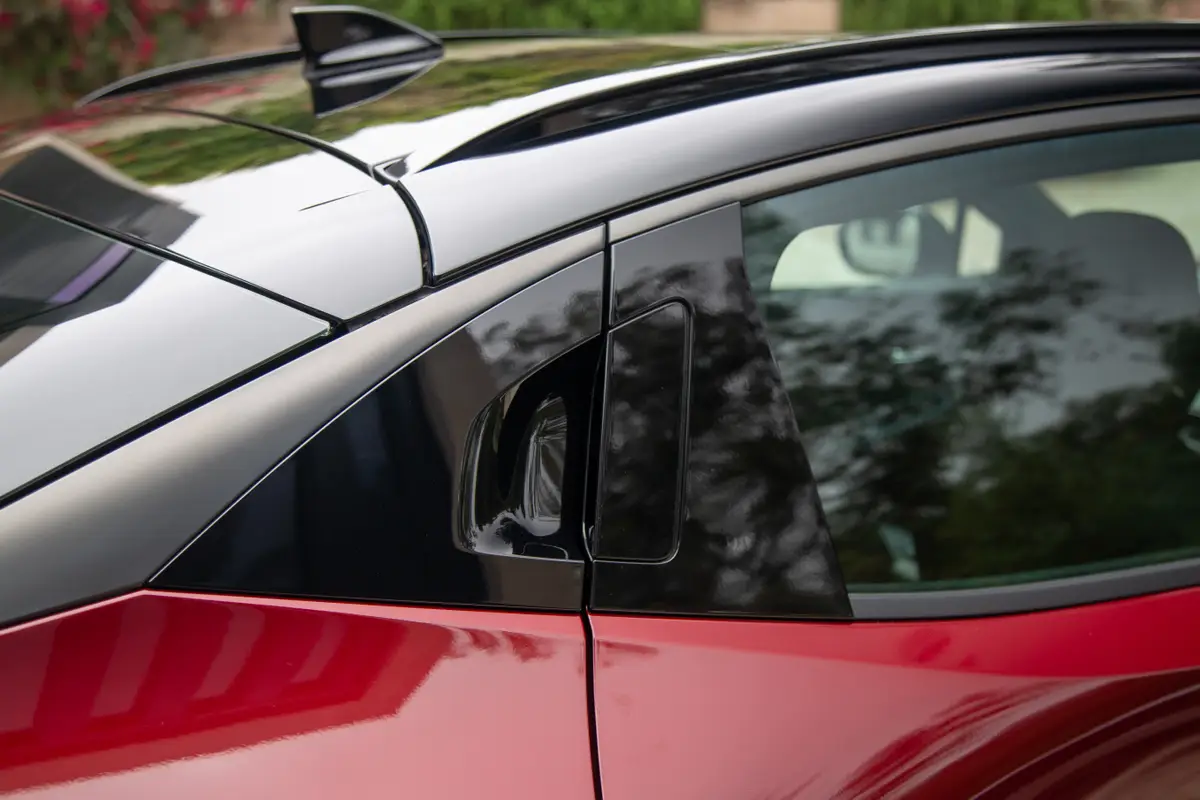
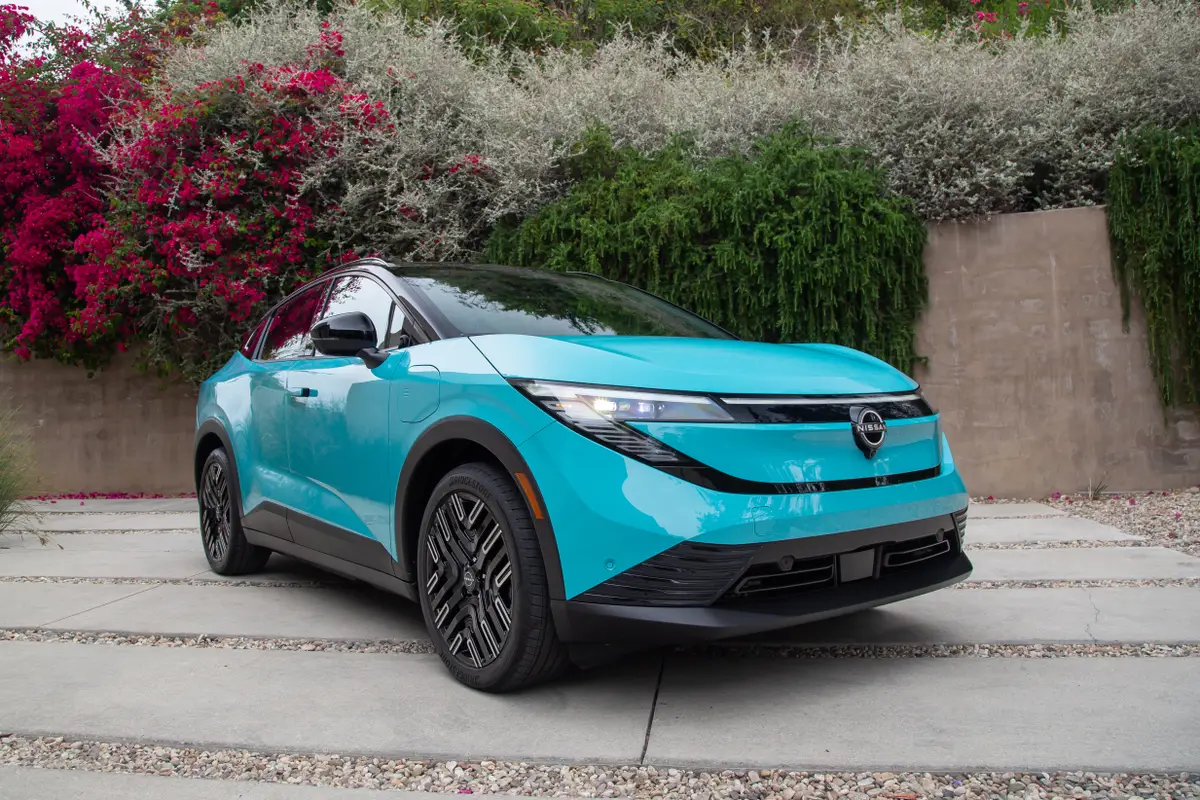
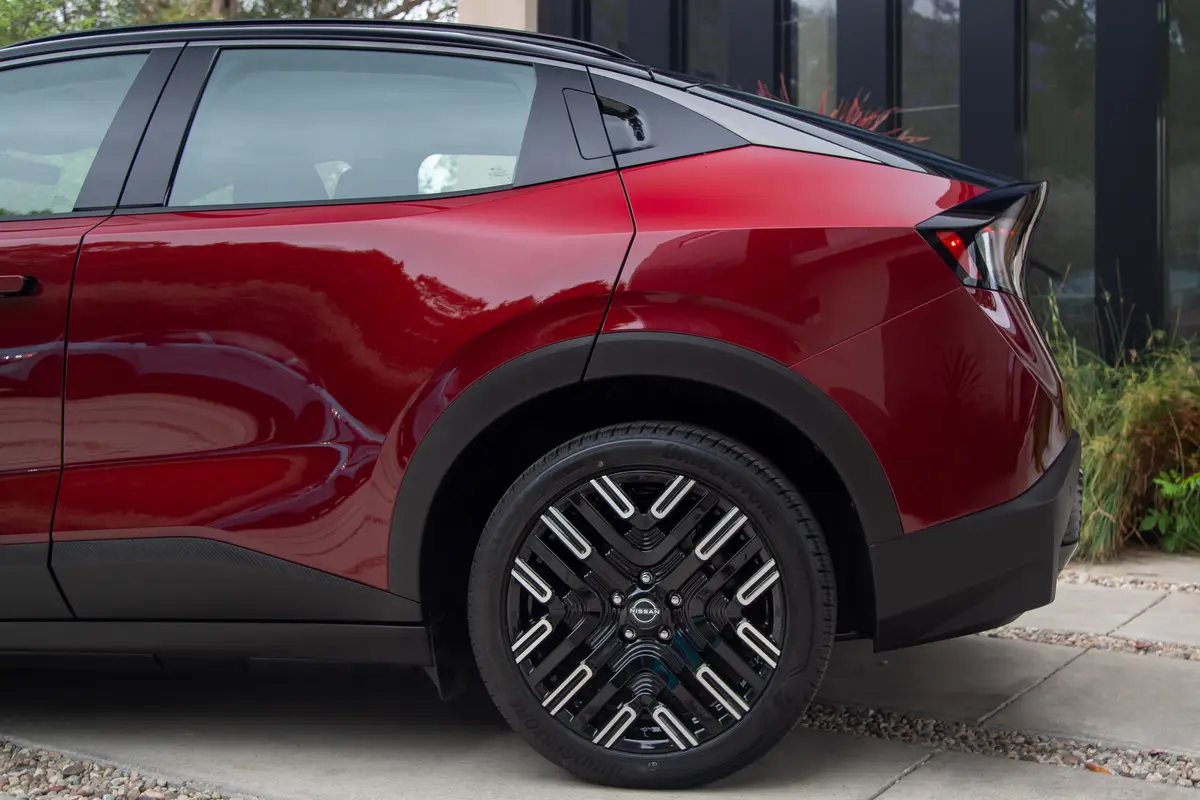
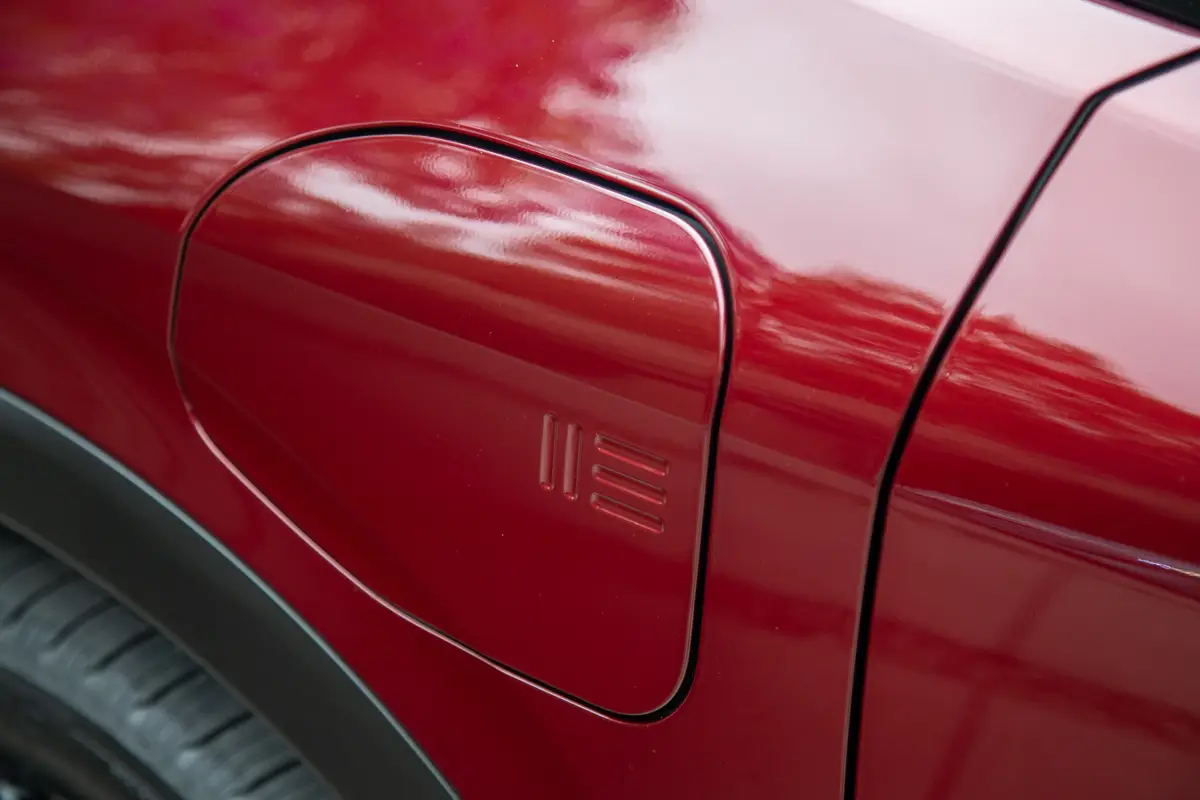
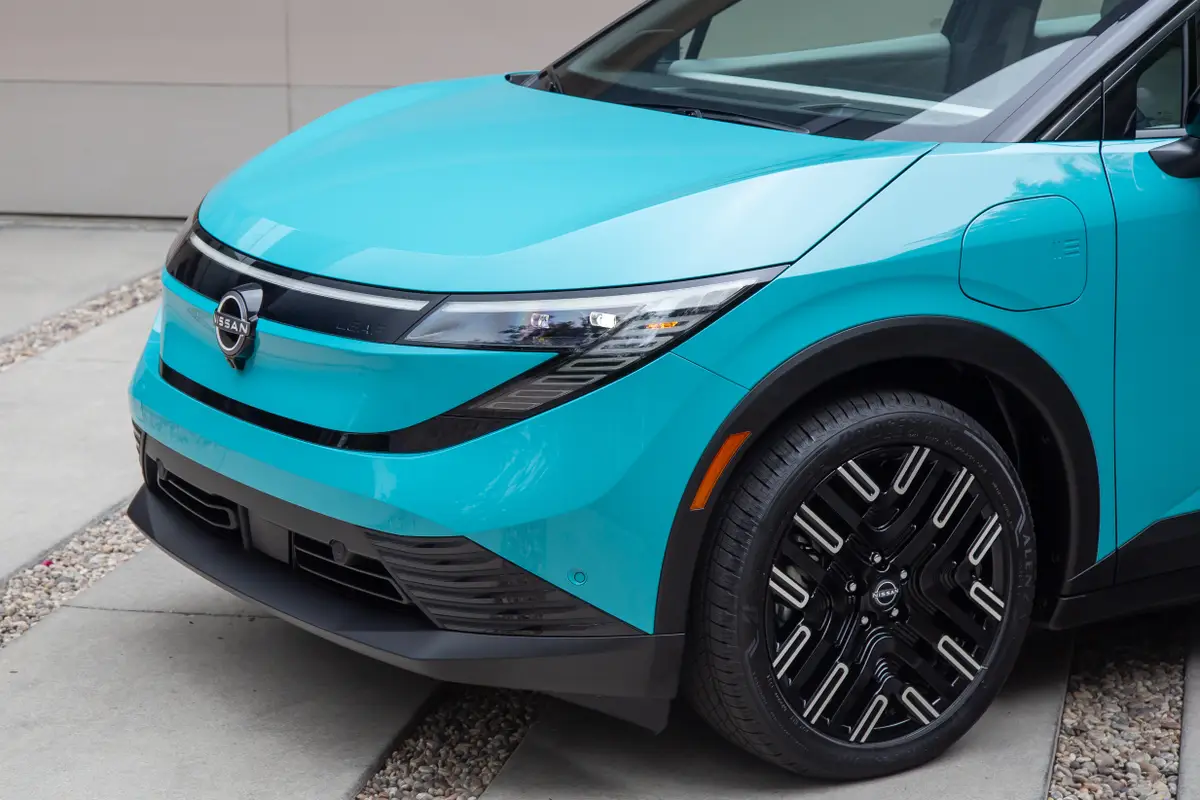
























The Leaf can charge stuff, too, with vehicle-to-load capabilities offering up to 1,500 watts of output. And you won’t be nearly as stressed with this drain as you might’ve been for older Leafs as range is predictably up. The most the last Leaf could muster was an EPA-rated 226 miles, with the base offering a bit less than 150 miles on a full charge. For 2026, the least efficient Leaf will carry you an estimated 259 miles, per Nissan, jumping to 288 miles in the mid-trim SV+ and topping out at 303 miles of range for the S+ with the 75-kWh battery (official EPA ratings are not yet available). Nissan has yet to reveal figures for the smaller battery in the base S trim.
More From Cars.com:
- Nissan’s Second Drop on Next-Gen Leaf: Powertrain and Platform
- Nissan Signs Charging Agreement With Tesla
- Here Are the 11 Cheapest Electric Vehicles You Can Buy
- What to Know Before Purchasing an Electric Vehicle: A Buying Guide
- Research the Nissan Leaf
Pricing and Release Date
Nissan’s not saying a word yet on pricing, but we’re all hoping it’s not too far off the current Leaf’s $29,280 base price (including destination). Perhaps that’s just wishful thinking in 2025 given both the state of new-car prices these days and the 2026 Leaf’s impressive suite of upgrades. Regardless, look for it to slot in slightly under the forthcoming Toyota C-HR, for which we also do not have pricing.
But do keep an eye out, as 2026 Nissan Leafs are expected to hit dealers later in the fall.
Related Video:
Cars.com’s Editorial department is your source for automotive news and reviews. In line with Cars.com’s long-standing ethics policy, editors and reviewers don’t accept gifts or free trips from automakers. The Editorial department is independent of Cars.com’s advertising, sales and sponsored content departments.

Conner Golden joined Cars.com in 2023 as an experienced writer and editor with almost a decade of content creation and management in the automotive and tech industries. He lives in the Los Angeles area.
Featured stories
